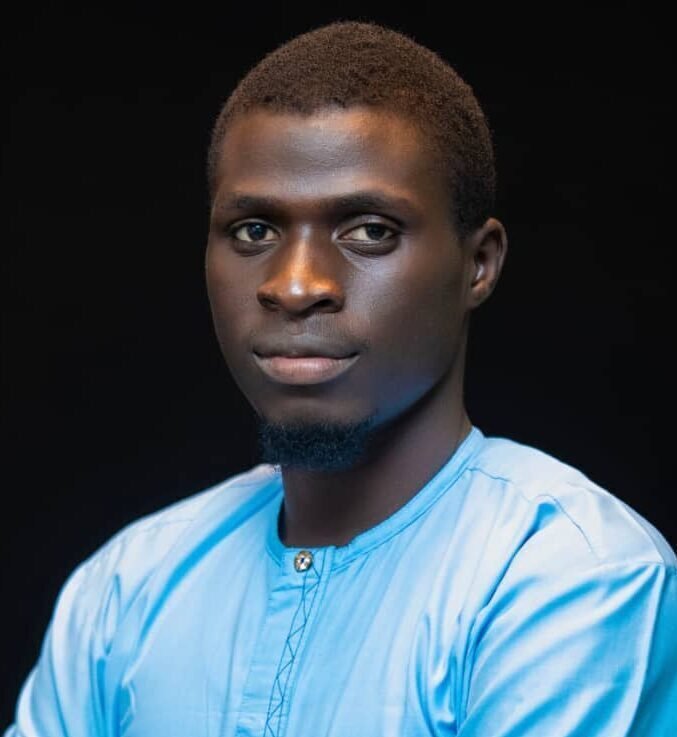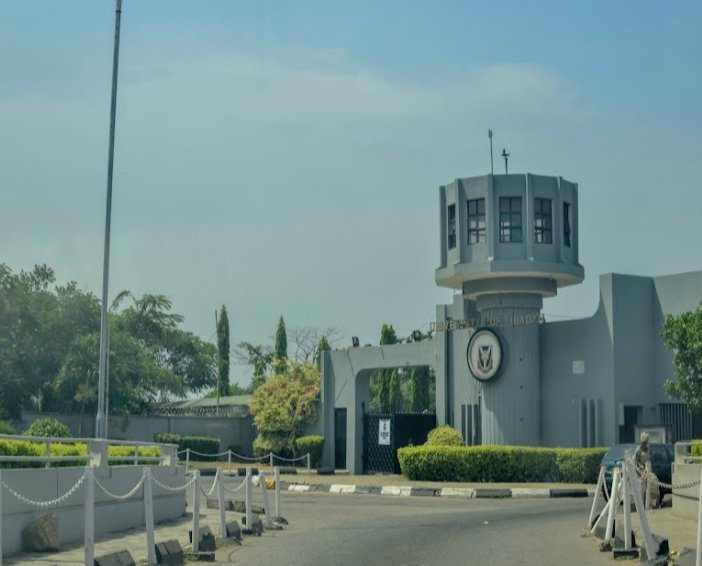Akanni Oluwasegun, a third-year student of Communication and Language Arts, never imagined that performing his duty as a campus journalist would earn him one of the worst beatings of his life. But on March 7 this year, three security operatives from his school pounced on him, pinned him to the ground, and seized his phone.
“I entered the scene just as one of the officers landed a terrible slap on Akanni,” recalled Olanshile Ogunrinu, the president of the Union of Campus Journalists (UCJ), University of Ibadan (UI).
As a UCJ president, Olanshile tried to intervene, only to become the next victim. The same officer who had struck Akanni turned on him, slapping, kicking, and dragging him while trying to seize his phone, too.
The student journalist had come to cover the inauguration of UI’s newly elected Student Union executives and its legislative arm, Student Representative Council (SRC) members. Throughout the event, Akanni stayed glued to his phone, recording speeches, including the valedictory address of the outgoing president. But the atmosphere shifted when a security personnel asked Nice Linus, an elected SRC member, to leave the venue.
When she refused, security operatives forcefully dragged her outside. The sight disturbed Akanni, whose journalistic instincts kicked in. He moved closer to document the scene. Students, witnessing the aggression, voiced their outrage.
Narrating why she believed the security personnel acted in that manner, Nice Linus said she, alongside other students, protested a fee hike announced by the University of Ibadan (UI) management in May 2024. She thought the issue had been resolved and forgotten after a fact-finding committee invited them for discussions. Not until a year later, on March 1, when she was elected as a member of the SRC, did the Deputy Registrar on Student Affairs Tijani Musa revoke her election, citing a pending disciplinary case related to her role in the protest.
In a memo, the Deputy Registrar claimed Linus’s participation in the election was an “oversight” due to a university regulation barring students with unresolved disciplinary cases from contesting electoral positions. However, Section 26 of the UI Student Union Constitution states that only students found guilty of gross misconduct can be disqualified.
Linus told The Liberalist that she was unaware of her disqualification until the inauguration day, when she was denied access to the inauguration venue.
During the chaos, “I saw the UCJ campus journalists and other students being assaulted by the security operatives.”
Then, everything escalated.
Musa, the university deputy registrar on students affairs, spotted Akanni filming and shouted, “He’s recording! He’s recording!” Instantly, three security officers pounced on him, pinning him to the wall. Musa himself snatched the phone from Akanni’s hands. Moments later, Akanni was dragged to the school security unit and forced to write a statement.
“It was a very bad experience for me,” Akanni said. “The security officers slapped and hit me on the ground during the process.”
Olanshile said his phone was seized for about three hours. “I fear that the phone has been tapped or bugged because, since I got it back, WhatsApp has not worked throughout. I had to download a ‘WhatsApp Business’ that I’m using, so I feel maybe my communication apps have been compromised somehow.”
A Dangerous Trend
The brutality levied against Akanni and Olanshile is part of a disturbing pattern of attacks on journalists and media houses in Nigeria. During the #EndBadGovernance protests in August 2024, security forces reportedly assaulted at least 56 journalists in just 10 days. And throughout 2024, the country recorded 128 press freedom violations, according to the Press Attack Tracker (PAT), a project of the Centre for Journalism and Innovation Development that tracks, verifies and documents cases of press freedom violations in Nigeria.
Institutions charged with protecting the people have become journalists’ greatest threat. Experts believe it is more dangerous when academic institutions, where students are supposed to learn how to voice out their concerns, become a place of intimidation and persecution for journalists.
Last year, Usmanu Danfodiyo University Sokoto (UDUS) suspended the operations of a campus-based news publication, Pen Press, for publishing a story the management said tarnished the institution’s reputation. Also, in 2020, the management of Adamawa State University banned a student press club operating in the institution for three months.
Nigeria, ranking 112th of 180 in the World Press Freedom Index, is among the most dangerous places for journalists in West Africa, according to the 2024 World Press Freedom Index by Reporters Without Borders (RSF), a global non-profit organisation.
Meanwhile, Section 22 of the Nigerian constitution empowers the media to act as a watchdog, holding the government accountable and providing citizens with the information they need to make informed decisions, and Article 19 of the Universal Declaration of Human Rights guarantees the freedom of expression, including ensuring freedom for the media around the world.
According to the United Nations, independent, free and pluralistic media are central to good governance in democracies that are young and old.
However, despite the provision of the constitution and international treaties safeguarding press freedom in the country, the attacks against journalists and media houses have been on the increasing trend.
Beyond physical violence, these attacks instil fear among aspiring journalists, forcing many to reconsider their career paths.
“The dangers of assaulting young journalists are that they will get the wrong picture about what this job is all about, which will send a signal to them that it’s not something that they can feel safe in,” said Lekan Otunfodurin, the executive director of Media Career Development Network.
“They can easily chicken out from even pursuing a profession in journalism,” said Otufodunrin. “So I think that is something that should be guided against. Campus journalists should not begin to get the feeling that they are not free to talk when they graduate to practise journalism. That’s the danger.”
Condemning the act, Otufodunrin said it’s particularly bad that the incident happened in a university environment where, normally, the rule of law should prevail.
In a statement by the Coalition of Campus Journalists in Nigeria, the association described the violent assault on Olanshile and Akanni as a direct attack on their dignity as student journalists and members of the university community called for a thorough investigation into the incident.
When The Liberalist presented this narrative to Adejoke Akinpelu, the university’s Deputy Registrar in the Directorate of Public Communication, she simply stated: “No comment.”














